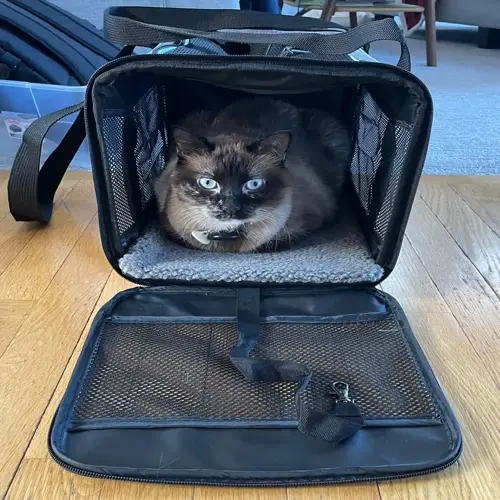What treats work best for training?

Written by
Elin Eriksson
Reviewed by
Prof. Edward Clarke, Ph.D.Using great rewards makes cat training more productive. The best rewards keep the cat in a motivated state, rather than causing fat issues. I have tested many hundreds of them, and there are certain characteristics in a treat that make it a superior training tool. A strong smell and taking little time to eat them are important in keeping the cat interested in the training sessions.
Scent & Appeal
- Strong odors cut through environmental distractions
- Novel proteins like rabbit boost initial interest
- Avoid familiar daily foods to maintain special value
Physical Properties
- Pea-sized pieces prevent chewing delays
- Soft textures dissolve quickly for rapid repetition
- Low-crumb formulations keep training areas clean
Nutritional Profile
- High-protein options support feline dietary needs
- Low-carb recipes prevent energy spikes
- Moisture-rich treats supplement hydration
Adopt a portion control strategy to avoid overfeeding. Spend 10% of your daily calorie intake on training rewards. Use a kitchen scale to measure the amounts of treats given. I recommend portions about the size of a pea, which allow frequent rewards to be given without exceeding nutritional requirements. Modify the feedings to suit.
Retain treat value through exclusivity. Keep high-reward options, such as tuna paste, reserved for training sessions only. Between uses, please keep them in scent-proof containers. This conditioning makes for more effective treat motivators. I rotate three treat types monthly to prevent my dog from getting bored.
Specialized training treats offer solutions to common feeding problems. They provide mental stimulation while fitting into your nutritional guidelines. When properly chosen and utilized, treats become an aid to feeding, not a compromise. Experimenting with various textures and proteins will help you discover your cat's favorites.
Read the full article: Cat Clicker Training: The Complete Guide

